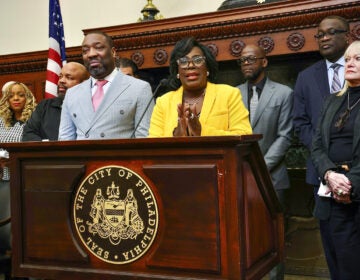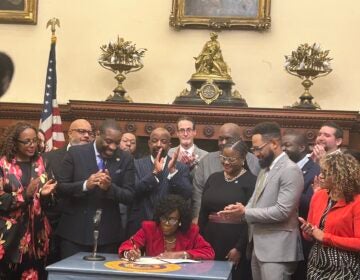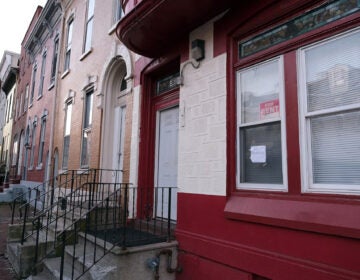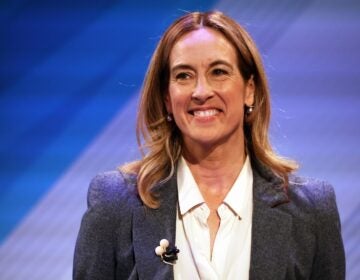Philly’s low-income renters could become eligible for new rebate under proposed legislation
The bill builds on an existing state rebate program. It’s designed to help tenants living on fixed incomes.
Listen 0:56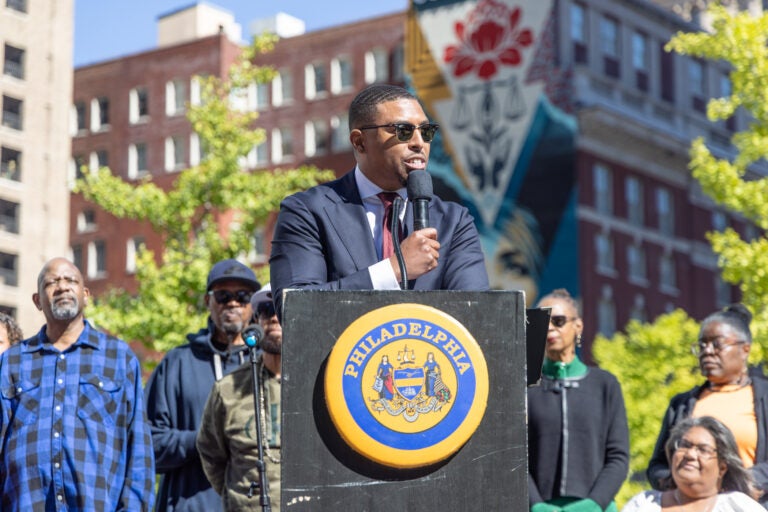
City Councilmember At-Large Nicolas O’Rourke held a press conference at LOVE Park to announce the Affordable Philly agenda on October 9, 2025. (Kimberly Paynter/WHYY)
Have a question about Philly’s neighborhoods or the systems that shape them? PlanPhilly reporters want to hear from you! Ask us a question or send us a story idea you think we should cover.
Philadelphia lawmakers are weighing legislation that would provide a rebate to certain low-income renters amid the city’s affordable housing crisis.
The measure, introduced Thursday by City Councilmember Nicolas O’Rourke, calls for the city to provide a local match to recipients of a state rebate program. The state initiative, called the Property Tax/Rent Rebate Program, provides refunds of between $380 and $1,000, depending on the applicant’s income.
The bill is designed to help Philadelphia tenants living on fixed incomes, including seniors, widows and people with disabilities. Under the bill, if a renter is approved for the state program, they would automatically be approved for the city program.
Landlords would also be required to provide information about the rebate to each new tenant.
“I’m introducing the Philadelphia Rent Refund to help eligible tenants who are indirectly burdened by rising property taxes and, unlike homeowners, get zero local relief,” O’Rourke said.
The legislation is part of a broader legislative campaign aimed at making life more affordable for Philadelphia households, half of which struggle to make ends meet.
The Affordable Philly Now initiative also includes measures meant to help low-income residents with transportation and utility costs.
O’Rourke wants to create a transit access fund to help SEPTA riders with low incomes. If passed, an amount equal to 0.5% of the general fund would be used to support the new fund each year, enough to provide free transit to roughly 60,000 city residents.
The goal is to create a permanent funding source for the city’s Zero Fare program. The measure, introduced in April, is a response to a budget battle over funding for the program, which saw Mayor Cherelle Parker restore dollars for the popular initiative after initially proposing to effectively discontinue it. Under a pilot, the program provided free SEPTA passes to 25,000 low-income people.
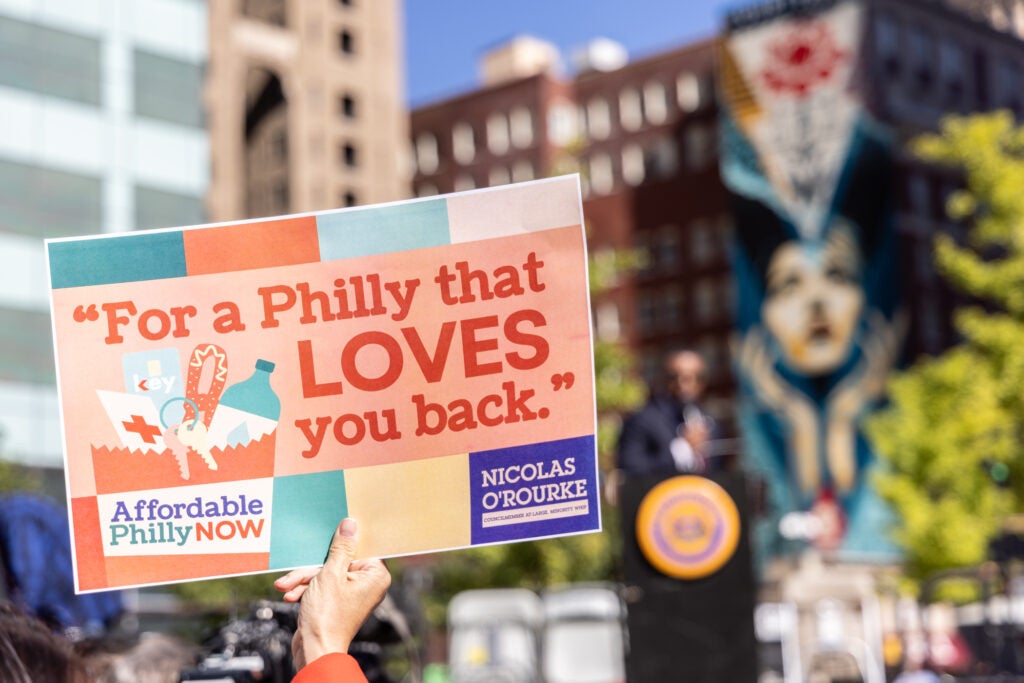
The measure requires a charter change, meaning it must be passed by voters at the polls after it’s approved by lawmakers. O’Rourke wants the ballot question to go before residents next year.
A third bill proposes another charter charge to bar the city from selling the Philadelphia Water Department. The department has been publicly operated for more than 200 years. The measure is considered preemptive.
The overwhelming majority of Americans get their drinking water from public systems. But since the passage of Act 12 in Pennsylvania, private water companies have been pushing to take control of those systems, raising concerns about the customer costs.
To date, a state commission has approved at least a dozen acquisitions.
“Towns and cities have steadily been privatizing their water systems across the nation and the Commonwealth. And everywhere it’s happened, rates have skyrocketed,” O’Rourke said.
More broadly, O’Rouke said the Affordable Philly Now initiative is about pushing back against the economic policies of President Donald Trump’s administration.
“Look at our nation right now — the anxiety that people have about their pockets and our politics. I believe people need more avenues to plug into something to fight for some tangible, material change that they can see at this moment,” O’Rourke said.

Get daily updates from WHYY News!
WHYY is your source for fact-based, in-depth journalism and information. As a nonprofit organization, we rely on financial support from readers like you. Please give today.




